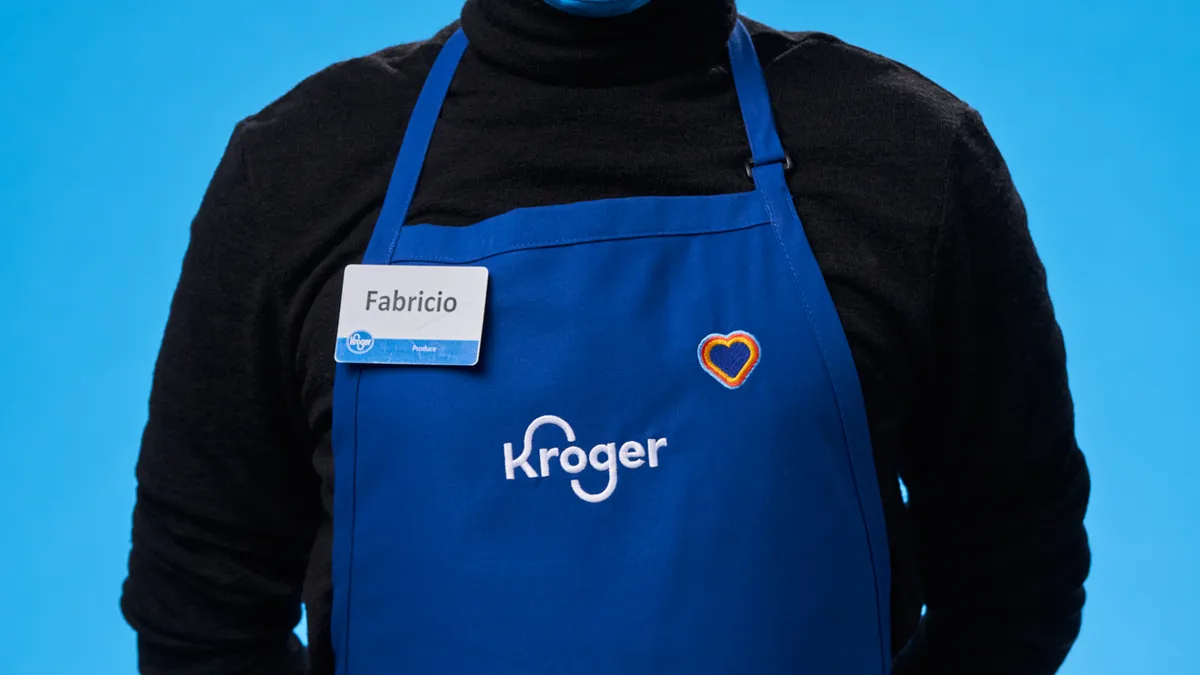Dive Brief:
- A jury should decide whether Kroger engaged in religious discrimination when it fired workers who refused to wear a company logo because they believed it represented support for LGBTQ individuals, a federal district court judge concluded (EEOC v. Kroger Limited Partnership I, No. 4:20-cv-01099 (E.D. Ark. June 23, 2022)).
- The employees sought an exception from a requirement that they wear an apron bearing a four-color heart logo. Kroger declined, saying that it had nothing to accommodate because the heart was not a LGBTQ pride rainbow. When the employees refused to comply with the dress code, Kroger fired them and the U.S. Equal Employment Opportunity Commission sued on the workers’ behalf.
- The judge dismissed the workers’ claims that Kroger retaliated against them for requesting a religious accommodation but said it would be up to a jury to determine whether the request would have posed an undue hardship. Kroger did not respond to a request for comment before press time.
Dive Insight:
Title VII of the Civil Rights Act of 1964 prohibits religious discrimination in employment and also requires that employers reasonably accommodate workers’ sincerely held religious beliefs. This can include an exemption from working a religious holiday, permission to take prayer breaks or an exemption from a dress code, for example, unless the change poses an undue hardship on the employer’s business.
In the current litigation, Kroger argued that the request would have harmed its branding and business image; would have required it to buy new uniforms for workers who refused to wear the logo; and would have created workplace disruption. The workplace disruption argument is perhaps Kroger’s most persuasive one, the judge said, noting that “something akin to a civil war broke out” at the plaintiffs’ store between those objecting to the dress code and LGTBQ employees and their allies; “Peace only came, according to Kroger, once it was clear that Kroger would strictly enforce its dress code.”
Still, that hardship wasn’t enough for the court to throw out EEOC’s allegations, the judge said. “Because a rational juror could go either way, summary judgment is inappropriate. The undue-hardship question is one for the jury.”
When an employer receives a religious accommodation request, EEOC has suggested the company engage in a conversation with the employee. “Once the employer becomes aware of the employee’s religious conflict, the employer should obtain promptly whatever additional information is needed to determine whether a reasonable accommodation is available without posing an undue hardship on the operation of the employer’s business,” according to an agency compliance manual.
The commission, which enforces the statute, has said on its website that an accommodation may cause undue hardship if it is costly, compromises workplace safety, decreases workplace efficiency, infringes on the rights of other employees, or requires other employees to do more than their share of potentially hazardous or burdensome work.














